第21章 C. THE REAL BASIS OF IDEOLOGY(5)
Manufacture was all the time sheltered by protective duties in the home market, by monopolies in the colonial market, and abroad as much as possible by differential duties. The working-up of home-produced material was encouraged (wool and linen in England, silk in France), the export of home-produced raw material forbidden (wool in England), and the [working-up] of imported material neglected or suppressed (cotton in England). The nation dominant in sea trade and colonial power naturally secured for itself also the greatest quantitative and qualitative expansion of manufacture. Manufacture could not be carried on without protection, since, if the slightest change takes place in other countries, it can lose its market and be ruined; under reasonably favourable conditions it may easily be introduced into a country, but for this very reason can easily be destroyed. At the same time through the mode in which it is carried on, particularly in the eighteenth century, in the countryside, it is to such an extent interwoven with the vital relationships of a great mass of individuals, that no country dare jeopardise its existence by permitting free competition. Insofar as it manages to export, it therefore depends entirely on the extension or restriction of commerce, and exercises a relatively very small reaction [on the latter]. Hence its secondary [importance] and the influence of [the merchants] in the eighteenth century. It was the merchants and especially the shippers who more than anybody else pressed for State protection and monopolies; the manufacturers also demanded and indeed received protection, but all the time were inferior in political importance to the merchants. The commercial towns, particularly the maritime towns, became to some extent civilised and acquired the outlook of the big bourgeoisie, but in the factory towns an extreme petty-bourgeois outlook persisted. Cf Aikin, [3] etc. The eighteenth century was the century of trade. Pinto says this expressly: " Le commerce fait la marotte du siècle" ; and: "Depuis quelque temps il n'est plus question que de commerce, de navgation et de marine." [ "Commerce is the rage of the century." "For some time now people have been talking only about commerce, navigation and the navy." -Ed.]
[3] The movement of capital, although considerably accelerated, still remained, however, relatively slow. The splitting-up of the world market into separate parts, each of which was exploited by a particular nation, the exclusion of competition among themselves on the part of the nations, the clumsiness of production itself and the fact that finance was only evolving from its early stages, greatly impeded circulation. The consequence of this was a haggling, mean and niggardly spirit which still clung to all merchants and to the whole mode of carrying on trade. Compared with the manufacturers, and above all with the craftsmen, they were certainly big bourgeois; compared with the merchants and industrialists of the next period they remain petty bourgeois. Cf. Adam Smith.
This period is also characterised by the cessation of the bans on the export of gold and silver and the beginning of the trade in money; by banks, national debts, paper money; by speculation in stocks and shares and stockjobbing in all articles; by the development of finance in general. Again capital lost a great part of the natural character which had still clung to it.
The concentration of trade and manufacture in one country, England, developing irresistibly in the seventeenth century, gradually created for this country a relative world market, and thus a demand for the manufactured products of this country, which could no longer be met by the industrial productive forces hitherto existing. This demand, outgrowing the productive forces, was the motive power which, by producing big industry -- the application of elemental forces to industrial ends, machinery and the most complex division of labour -- called into existence the third period of private ownership since the Middle Ages. There already existed in England the other pre-conditions of this new phase: freedom of competition inside the nation, the development of theoretical mechanics, etc. (Indeed, the science of mechanics perfected by Newton was altogether the most popular science in France and England in the eighteenth century.) (Free competition inside the nation itself had everywhere to be conquered by a revolution -- 1640 and 1688 in England, 1789 in France.) Competition soon compelled every country that wished to retain its historical role to protect its manufactures by renewed customs regulations (the old duties were no longer any good against big industry) and soon after to introduce big industry under protective duties. Big industry universalised competition in spite of these protective measures (it is practical free trade; the protective duty is only a palliative, a measure of defence within free trade), established means of communication and the modern world market, subordinated trade to itself, transformed all capital into industrial capital, and thus produced the rapid circulation (development of the financial system) and the centralisation of capital.
By universal competition it forced all individuals to strain their energy to the utmost. It destroyed as far as possible ideology, religion, morality, etc. and where it could not do this, made them into a palpable lie. It produced world history for the first time, insofar as it made all civilised nations and every individual member of them dependent for the satisfaction of their wants on the whole world, thus destroying the former natural exclusiveness of separate nations. It made natural science subservient to capital and took from the division of labour the last semblance of its natural character.